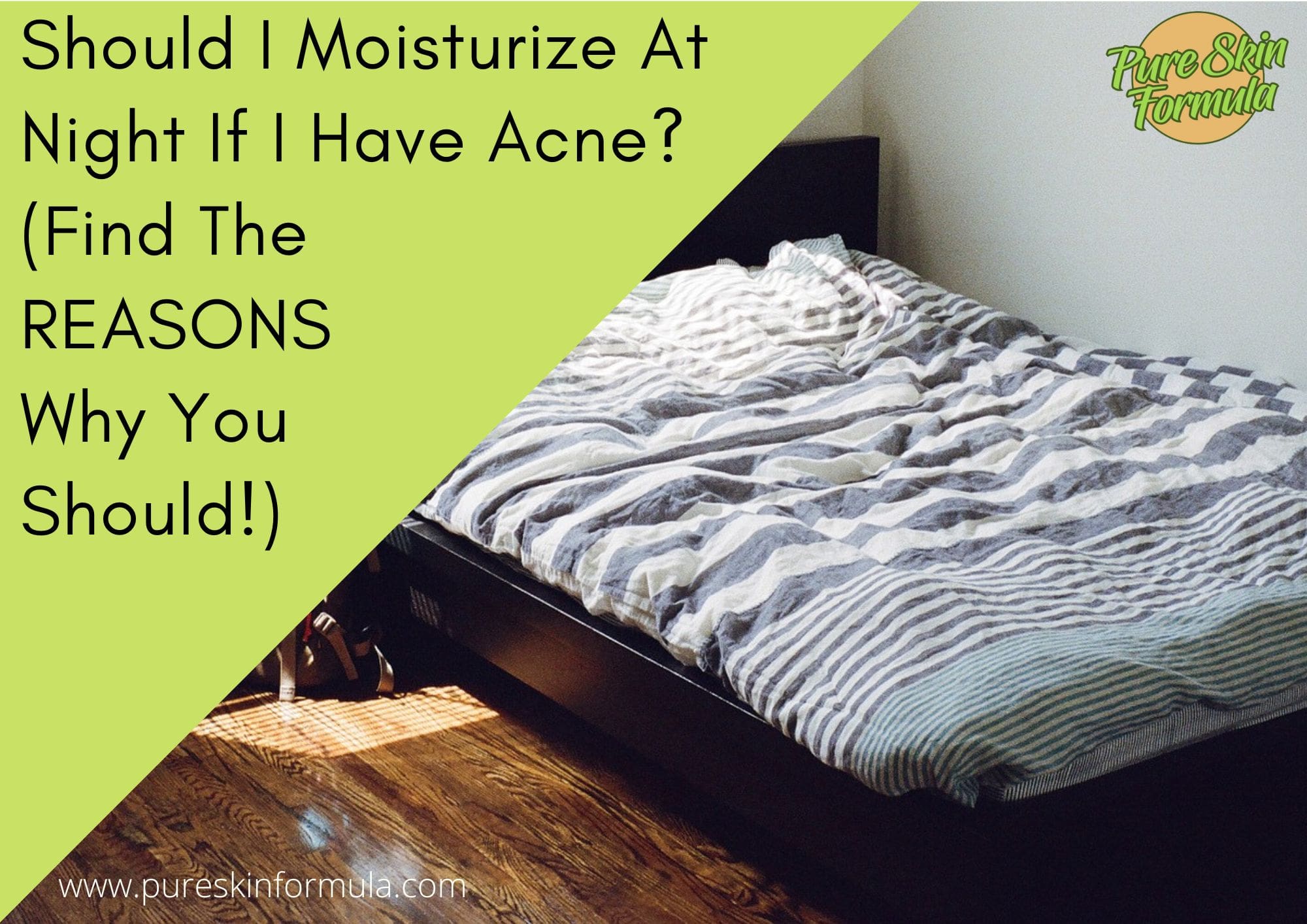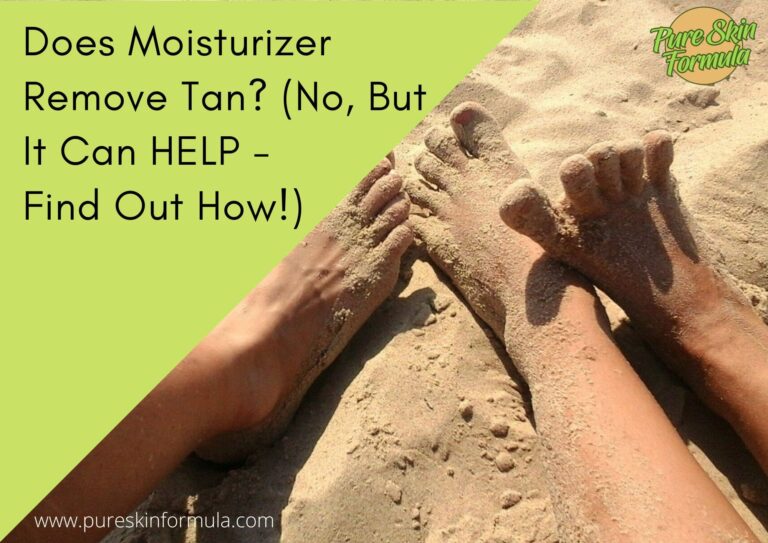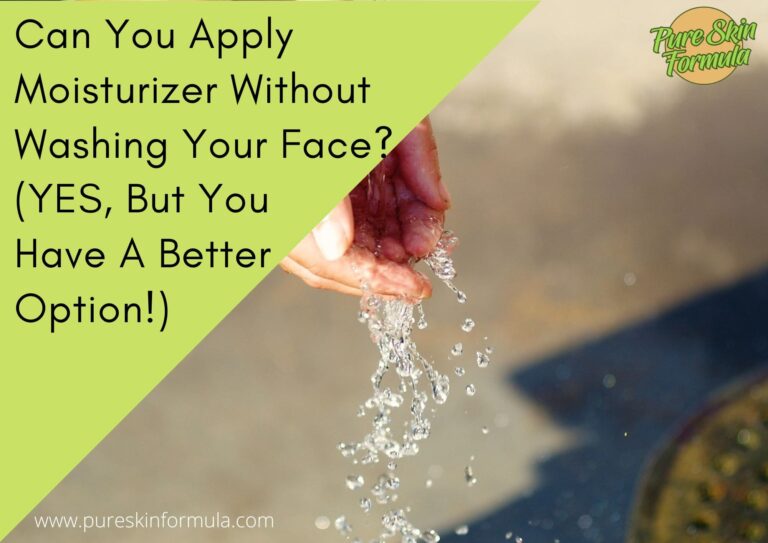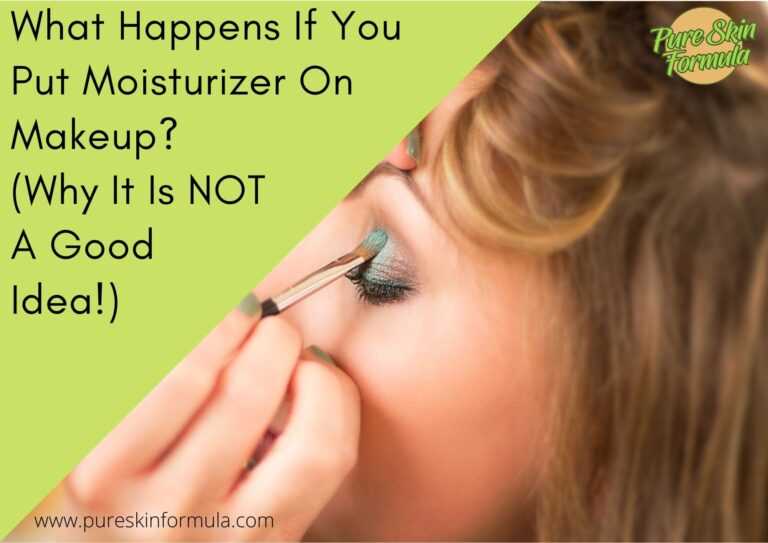It is unnecessary, but you can do it, as it might benefit your skin. For sure, it is not something that may harm you.
This question has two parts: moisturizing at night and moisturizing while having acne.
I will dissect it and cover both topics to gain more profound knowledge.
Should I Moisturize At Night If I Have Acne?
Yes, because:
- It is good to keep your skin moisturized during the night;
- Moisturizer is not an enemy of acne.
Let’s get into a bit more detail.
It is good to keep your skin moisturized during the night
It is good to moisturize your skin at night; You have to choose the right product for your skin type and bedtime. Let’s see how to do it with the right products.
What is night cream?
The night cream is a moisturizing skin product formulated in a way that works best at night.

These products offer moisturization, and hydration and help with cellular repair and skin regeneration.
For most of us, a daily skin care regimen consists of cleansing, toning and moisturizing.
Night creams and day creams are like two sides of a coin; day cream offers protection from the damaging effects of the sun and dirt while night cream takes care of cellular damage repair of the skin and helps with various signs of aging like wrinkles fine lines, dark spots, pigmentation etc.
The ingredients in night creams
Many types of night creams are available in the market, and anyone can choose the formulation that best suits their skin needs.
Some ingredients in night creams are vitamins A, C, and E, anti-ageing components, essential oils like rose oil, olive oil, jasmine oil, lavender oil, jojoba oil, cannabis oil, moisturizing ingredients like honey, shea butter, cocoa butter and other antioxidants, retinol, peptides and amino acids.
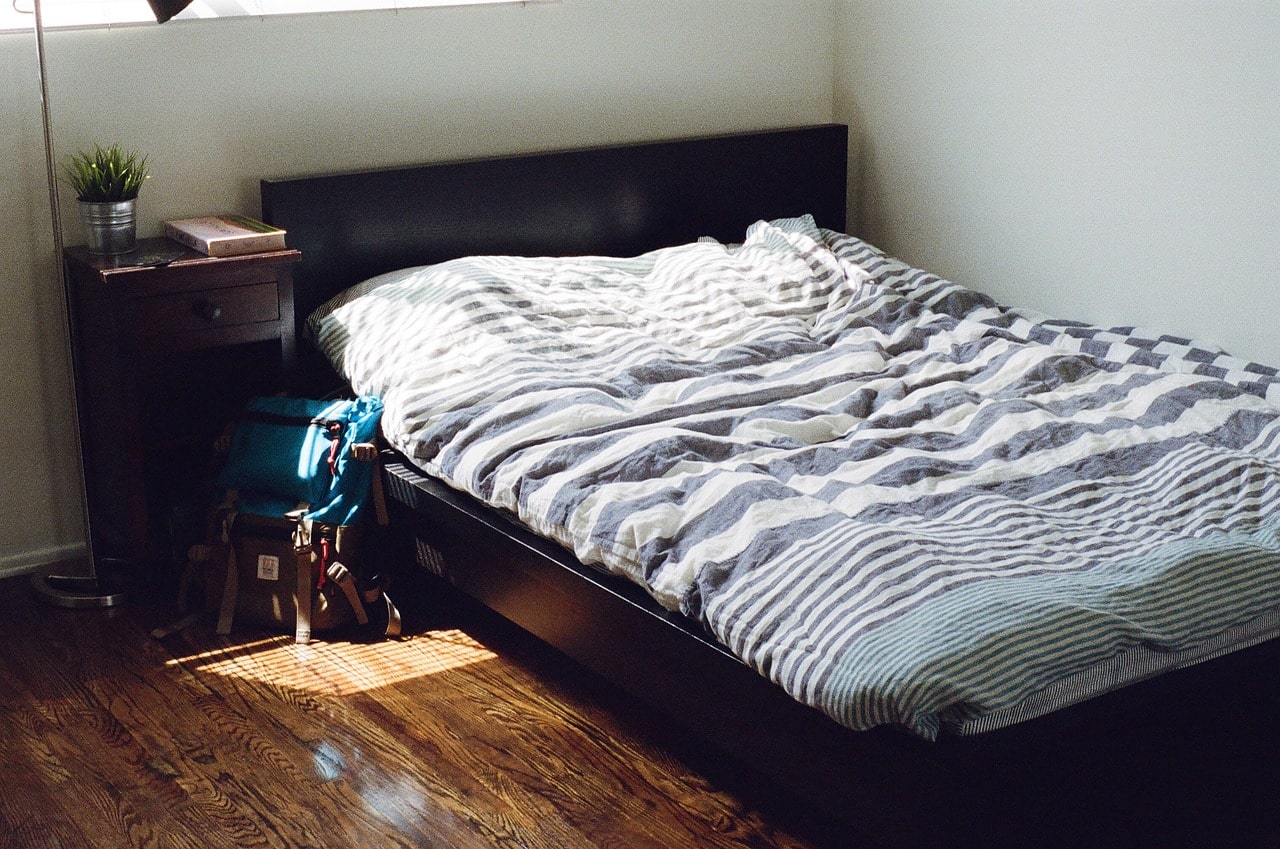
How do I apply night cream?
Proper application of a night cream is essential for its effectiveness.
- Clean the face of all impurities and makeup.
- Use a skin-friendly cleanser that is not drying.
- If you use a face serum, apply it before the cream.
- Put a small amount of cream on the face and neck.
- Massage (rub in) in an upward circular motion.
Apply your facial products about 30 minutes before bedtime so they can be absorbed by the skin and begin their action.
Moisturizing the skin at night is a good thing to do. But what about doing it if you have acne?
Moisturizer is not an enemy of acne
While moisturizing your skin, you should also apply anti-acne products. What is the relation between these two types of skincare?
Let’s start with a few tips about how to oppose acne.
Choose “non-comedogenic” anti-acne cream. This tricky word means that the cream does not contain ingredients that can clog skin pores.
Acne creams are not ordinary face creams. They are specially formulated for skin that gets seriously oily and has a significant accumulation of dead cells, enlarged pores, inflammation and blackheads.
An active cream means its active ingredients are guaranteed to be impactful and super effective against these problems while not spoiling the skin’s balance.
Avoid very greasy and heavy anti-acne creams. No matter what active ingredients an acne cream has, be cautious if it has a thick and dense texture. It will likely clog your pores and give you headaches in the long run.
To avoid dryness, listen to your skin. Just as every person has individual sleep and food needs, every skin is different and needs its care regimen.
Adjust your treatment accordingly. If you feel the skin is starting to get excessively dry, incorporate hydration and dilute the application of the active cream until you achieve the right balance.
Look for a cream that works on oiliness but also has an antibacterial effect. The cause of the rampant breakouts on your face is the presence of P.acnes bacteria.
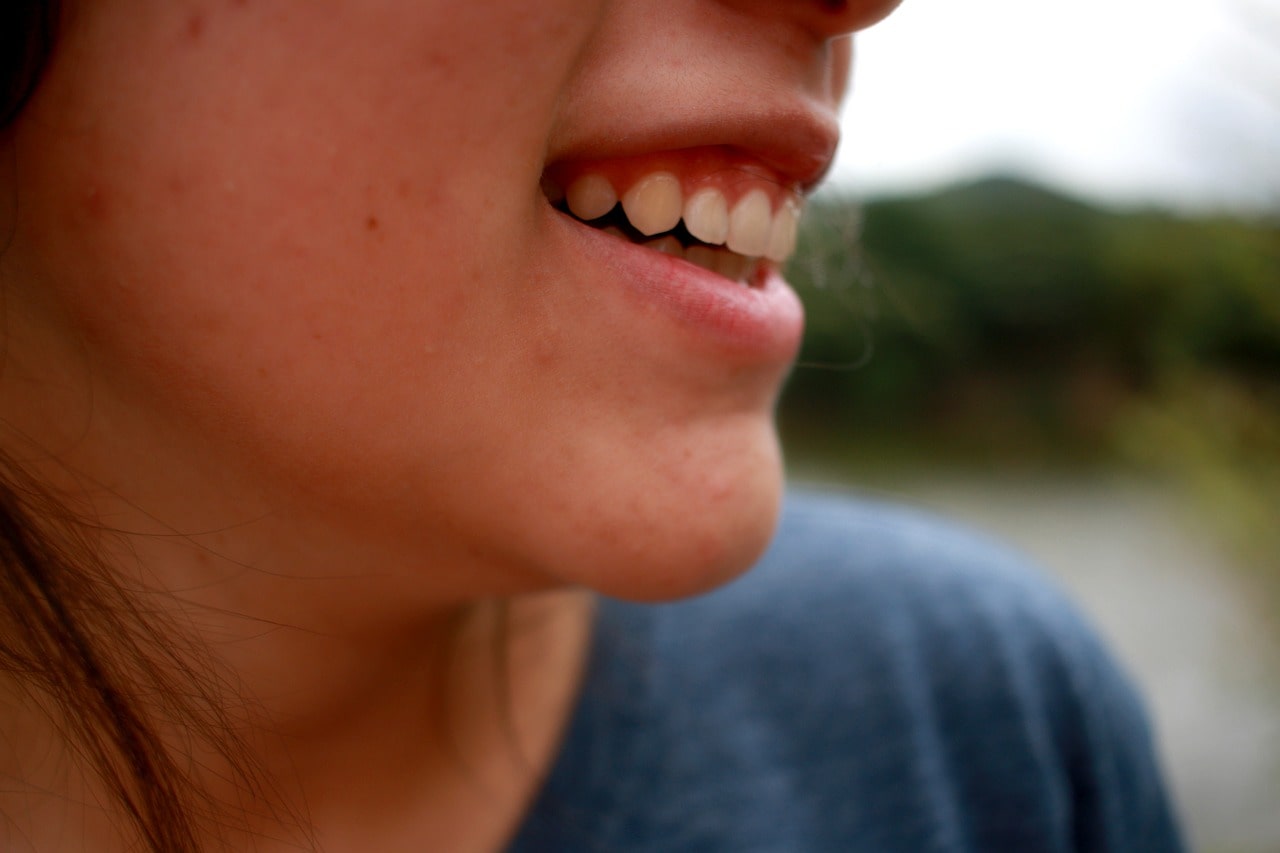
They like to breed where they are provided with good living conditions – in the hair follicle duct, where it is dark, without oxygen and with abundant food supplies.
Therefore, an essential step in your fight against acne is to destroy this enemy methodically. Choose an active anti-acne cream with a safe antibacterial effect, and you’ll be a step ahead in the right direction.
Don’t squeeze pimples that are deep under the skin! Be patient and let your acne cream do its job and remove the inflammation.
And here comes the support of the moisturizer. It better be oil-free and non-comedogenic so that it won’t clog your pores and calm irritated and sensitive skin.
Hydrated skin will prevent it from overproducing oil to compensate for the dryness.
I want to touch on another significant reason why you should use moisturizer if you use acne treatments.
It is because the latter often have one of the following ingredients: benzoyl peroxide, salicylic acid, tretinoin or isotretinoin.
These ingredients can cause your skin to dry out.
What to do? Add a layer of moisturizer on top of the treatments you use against acne.
Here is a brief explanation of each of them.
Benzoyl peroxide
When you use benzoyl peroxide, you use benzoic acid and oxygen because the product breaks down on contact with your skin.
The oxygen helps to destroy the bacteria that lead to acne.
The benzoic acid causes the skin to peel and dry, exfoliating the nests of dead skin and sebum that inflame the follicles, causing breakouts.
If you have sensitive skin and mild acne better think twice before choosing benzoyl because it is likely to worsen your problems if you use too much of it.
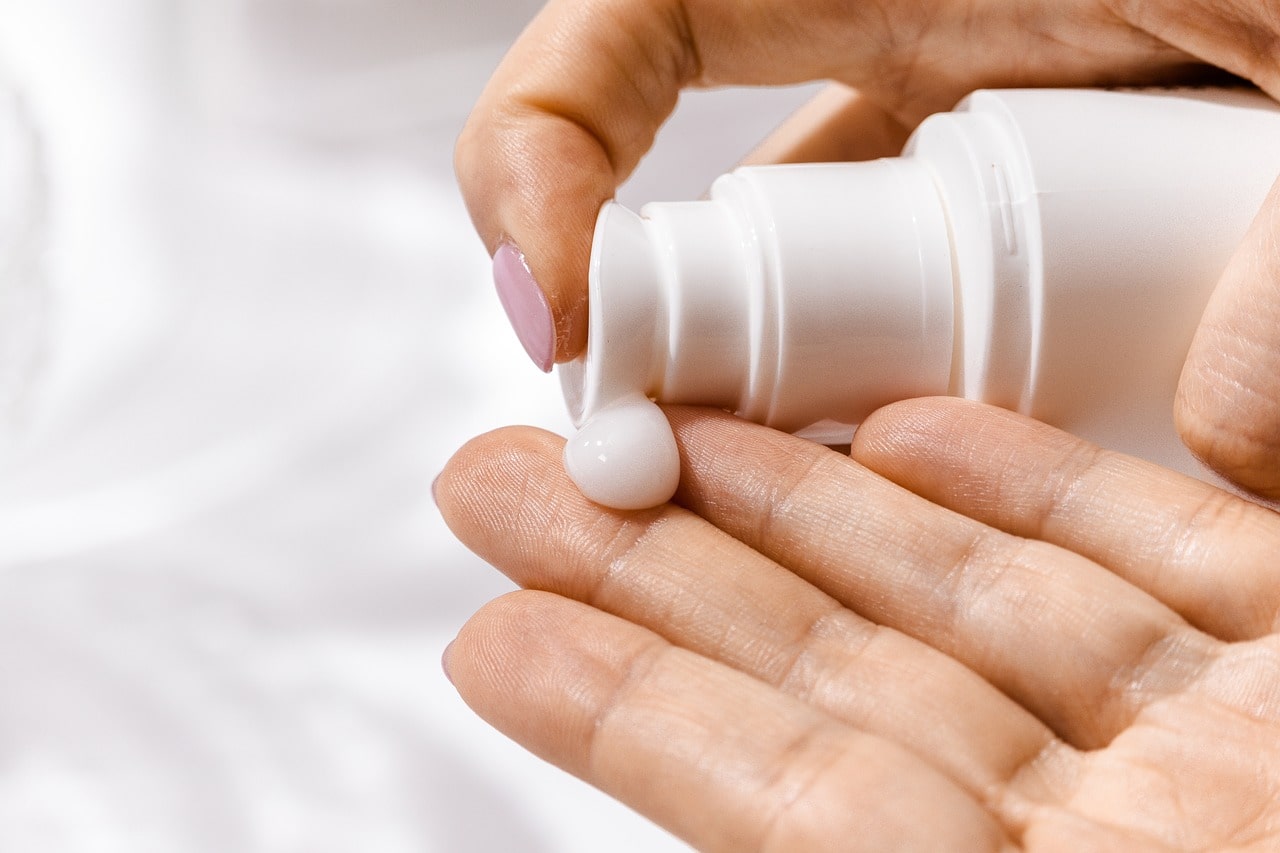
Salicylic acid
Salicylic acid is the best choice for sensitive skin and people plagued by blackheads.
Salicylic acid, like benzoic acid, is a good choice for exfoliation, but it is milder, does not contain oxygen, and does not kill acne bacteria.
Salicylic acid is a good choice if you have many blackheads and pimples but not deep, closed comedones.
Salicylic acid is suitable for more sensitive skin because it dries less. Again, it is better not to overdo the product because it worsens things.
Tretinoin
It is a derivative of vitamin A and is the treatment for comedonal acne, whiteheads, and blackheads.
It works by increasing the number of skin cells, which promotes the extrusion of the associated material into the follicle. It also prevents the formation of new comedones.
How should I use Tretinoin cream?
- Apply a thin layer at night.
- In the morning, wash your face with a light facial scrub or damp washcloth. This will help reduce visible peeling.
- After washing, apply a water-based moisturizer. The moisturizer will make the drying effect of the medicine more tolerable.
- If peeling occurs during the day, use a towel to remove it and apply more moisturizer.
- Try to use a moisturizer that also contains sunscreen. If not, apply sunscreen whenever you’re in the sun – even briefly, tretinoin makes you more susceptible to sunburn.
How does isotretinoin work?
The drug affects the underlying mechanisms that cause acne.
One of the most impressive effects is the drastic reduction of sebum production.
The drug triggers controlled destruction and a reduction in sebaceous cells.
And less sebaceous cells – less sebum. This also leads to a decrease in the size of the gland.
Isotretinoin destroys both already-formed comedones and prevents the formation of new ones.
To wrap it up
Now you know why you should moisturize your face if you use anti-acne products. You can do this both during the day and at night.
And one more tip: experiment with applying your moisturizer on a thoroughly wet face with patting movements.
Thus you can increase the chance of keeping the water on your skin and hydrating your face better.
Thank you for reading!
Valeria

